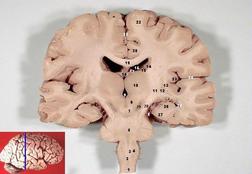- More than two thirds of college students who were told that a nonexistent electrical current passing between two electrodes on their head would cause headaches, subsequently reported a headache.
- Japanese researchers tested boys who reported being allergic to a particular plant. One arm of each boy was brushed with the allergenic plant and boys were informed that it was an innocuous plant. Simultaneously, the other arm wa brushed with an innocuous plant and the boys were informed that it was the allergenic plant. Within minutes, the arms brushed with the innocuous plant (which the boys believed they were allergic to) developed rashes and blisters,
- In one of the largest and most prestigious longitudinal studies, women who believed that they were at risk of developing heart trouble were up to four times as likely to die of a heart attack then women with matched risk factors, but who didn't believe they were at risk.
- Could it also account for those individuals who believe they are wifi sensitive or report that wind turbines, that nobody hear, are causing health problems?; i.e., if you think you are being negatively by something, then your brain makes sure that you are!
 Remember, we take the hard work out of IB Psychology - with complete sets of model examination answers!
Remember, we take the hard work out of IB Psychology - with complete sets of model examination answers! - Describe symptoms and prevalence of one disorder
- Analyse etiologies of one disorder
- Examine biomedical, individual and group approaches to treatment.
We could imagine it going something like this: "... Just as the placebo effect is said to account for much of the efficacy of serotonin reuptake inhibitors in many patients, so too could the nocebo effect cause the drug not to work in certain individuals. For example, if a patient prescribed an antidepressant such as Prozac believed that they did not really work and that that they had lots of harmful side effects, then that belief itself, would cause a detriment to the individual - the nocebo effect."
There is no examiner in the history of IB Psychology who wouldn't stop and read those few sentences twice and think to themselves that this student not only knows her stuff, but is a top notch critical thinker too.










 RSS Feed
RSS Feed